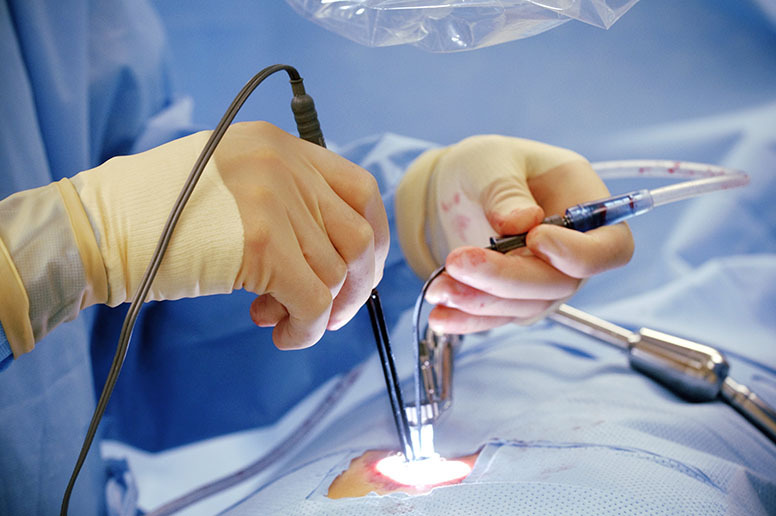Dr. Jaisingh Shinde - Laparoscopic Surgery Expert in Pune
Laparoscopic surgery has successfully replaced open surgery as the preferred treatment option for issues such as bariatric surgery and gallbladder removal. In fact this surgery can now be performed as an outpatient operation. The treatment of gastroesophageal reflux disease is now carried out using minimally invasive techniques. Laparoscopic fundoplication offers the advantage of faster recovery and quicker return to oral ingestion of food. Laparoscopic surgery for weight loss has caught on in a big way. Laparoscopy has advanced sufficiently to the extent that it can be repeated for a patient who has undergone a previous laparoscopic operation. However, care needs to be taken than organs do not get injured and to this end the entry site may have to be different and an alternate entry technique may have to be used. The risk to benefit ratio of laparoscopic surgery is improving continuously in favor of benefits.
The most common risks associated with laparoscopy are bleeding and infection. However, these are rare occurrences.
After your procedure, it’s important to watch for any signs of infection. Contact your doctor if you experience:
- stomach pain that becomes more intense over time
- chills
- fever
- redness, swelling, bleeding, or drainage at the incision sites
- continuous nausea or vomiting
- persistent cough
- shortness of breath
- inability to urinate
- lightheadedness
There’s also a small risk of damage to the organs being examined during laparoscopy. Blood and other fluids may leak out into your body if an organ is punctured. In this case, you’ll need other surgery to repair the damage.
Other, less common risks include:
- complications from general anesthesia
- inflammation of the abdominal wall
- a blood clot, which could travel to your pelvis, legs, or lungs
doctor may change the dose of any medications that could affect the outcome of laparoscopy. These drugs include:
- anticoagulants, such as blood thinners
- nonsteroidal anti-inflammatory drugs (NSAIDs), including aspirin or ibuprofen
- other medications that affect blood clotting
- herbal or dietary supplements
- vitamin K
You should also tell your doctor if you’re pregnant or think you might be pregnant. This will reduce the risk of harm to your developing baby.
Before laparoscopy, your doctor may order blood tests, urinalysis, electrocardiogram (EKG or ECG), and chest X-ray. Your doctor might also perform certain imaging tests, including an ultrasound, CT scan, or MRI scan.
These tests can help your doctor better understand the abnormality being examined during laparoscopy. The results also give your doctor a visual guide to the inside of your abdomen. This can improve the effectiveness of laparoscopy.

